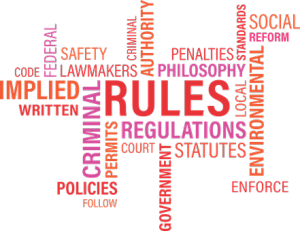New Jersey Business Law Decision Examines Tortious Interference
New Jersey business law protects economic relationships, whether or not there is a contract in place. However, a party suing for tortious interference must have competent evidence to prove every element of the claim. A New Jersey appeals court recently issued an opinion exploring what is necessary to establish tortious interference, and providing a cautionary tale to anyone thinking about filing a lawsuit for tortious interference without competent evidence.
thinking about filing a lawsuit for tortious interference without competent evidence.
Background: A Meeting of the Eyes Goes South
In 2002, Dr. Corey Notis was a young ophthalmologist who opened a surgical practice in Union, New Jersey. Allegedly he entered into an informal agreement with Alan Greenberg and Innovation Optics, Inc., in which they would refer him patients in need of ophthalmologic surgery. Greenberg was a licensed optician who owned an optical store. Greenberg thereafter introduced Notis to two other ophthalmologists who then also referred their patients who needed ophthalmologic surgery to Notis.
 New Jersey Lawyers Blog
New Jersey Lawyers Blog


 v. Shah
v. Shah will happen in the event of a future breach. This gives rise to greater likelihood that the contract will be performed, and hopefully limits litigation costs if there is a breach. However, New Jersey
will happen in the event of a future breach. This gives rise to greater likelihood that the contract will be performed, and hopefully limits litigation costs if there is a breach. However, New Jersey  Very often, a person or business will want to confer a benefit on a third party but will not be able to do so itself, for a variety of reasons. So then, to make sure the benefit will be conferred, it will enter into a contract with a person or business which has the ability to confer the benefit. The question, then, is what rights does the third-party beneficiary have?
Very often, a person or business will want to confer a benefit on a third party but will not be able to do so itself, for a variety of reasons. So then, to make sure the benefit will be conferred, it will enter into a contract with a person or business which has the ability to confer the benefit. The question, then, is what rights does the third-party beneficiary have?